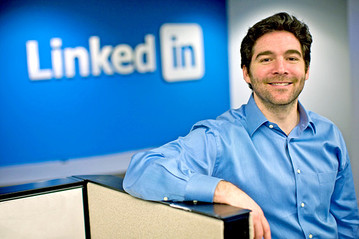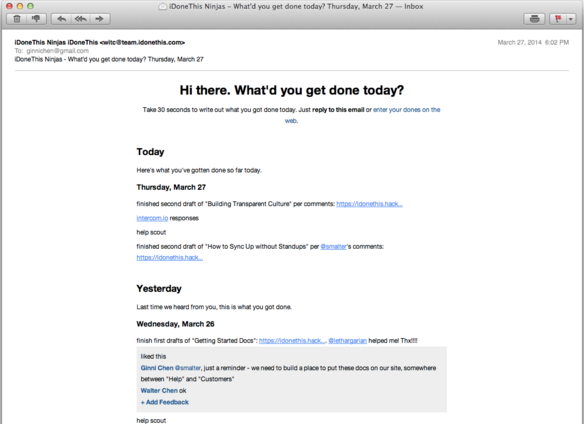You’re responsible for coordinating a daily standup with a team of developers, and you’re consistently faced with the same pesky problem: standup tardiness.
Every day you try to have a standup at about the same time, and no matter how hard you try, someone still doesn’t show up on time. This wouldn’t be as big a deal if it were an hour long meeting, but missing eight minutes of standup is missing most of it! Or, if you don’t start without them, you find yourself waiting fifteen minutes to hold a ten minute meeting. The whole point of the standup is to quickly communicate your daily schedule.

You’ve tried different times of the day, you’ve tried giving warnings, and you’ve even stopped making them physically stand up—but, still, all your efforts have proven futile.
The reason: one fundamental misunderstanding between developers and managers.
What’s The Issue?
The reason that your dev team experiences standup tardiness isn’t because they don’t respect you. It isn’t because they’re hiding anything. And it definitely isn’t because they’re being lazy. While it may seem like they don’t care about keeping you updated, it actually just comes down to a simple logistics issue.
Software developers don’t plan their time in terms of hours, they plan it in terms of half-days or sprints. That means that each engineer has to set aside several hours—or sometimes full days— to work on a project. Because their work requires focus and deep concentration, the chances that you find a ten-minute window that doesn’t interrupt someone’s time are slim to none.
Ok, so your short meeting interrupts them. Is that really such a big deal?

One developer related it to Legos— that interrupting a developer is like kicking over their half-built castle and expecting them to pick up from where they left off. This is because the big-picture model of how the code is supposed to work lives in a developer’s head. When their attention is taken away from that mental model, they are forced to take several steps back when picking that project back up. So if they are arriving late at the standup, it is likely because they are trying to step aside from their work at the least critical time.
Misunderstanding the root of this issue has caused many managers to come up with solutions that might mitigate tardiness, but, in turn, have serious negative effects on the developers’ productivity. And that’s the last thing you want.
What Am I Doing Wrong?
You likely have all the best intentions, and it is just a matter of working with your team to help realize those intentions. Here are a few common solutions that have resulted from conflicting perceptions, why these solutions aren’t cutting it, and just what adjustments must be made in order to have a successful standup.
1. Common Solution: Discipline
You’re their boss, not their friend. Why shouldn’t you show them that this kind of behavior is unacceptable? If you don’t, they’re going to stop following all the rules and walk all over you.
But remember the core of the problem: it’s a scheduling issue. Punishing your developers for prioritizing an important part of their project is hardly the message you are trying to send.
By disciplining your developers, you are alienating yourself from their team and turning it into a me-vs-them environment. It might ultimately get them to come to the meetings on time, but it will likely do more harm than good.
Disciplining can have a strong effect on morale, making the engineers feel under-appreciated, and lead to underperforming at their most important obligation: engineering. Why should they work late hours and pour all their hard work into this product if all they hear is criticism?
Better Solution: Positively reinforce
Constantly try to remind your employees that you appreciate them. The most important thing is for you to recognize that this sort of disruption is really costly to your developers, and make them realize that you are trying to pick times that are the least detrimental to their workflow.
Jeff Weiner, CEO of LinkedIn, empowers employees to feel good about their work by starting every meeting with each employee sharing two of his achievements, or “wins.” If the meeting starts by highlighting how much the developers have already accomplished—and not just what’s left—the developers will have a positive association with this meeting and find a way to make time for it, even if it’s costly.

Or skip the lukewarm coffee and bring lattes to the meetings. Being generous in small ways can also make your employees feel valuable (although studies show that a simple thank you is even more effective).
2. Common Solution: Micromanage
You begin to think, well if they can’t manage their time, I’ll do it for them. After all, you’re excellent at managing your own time (you’re never late!)
You might start by asking them to begin the day with one project and then spend the rest of the afternoon, after the standup, on a bigger project. Oh, and you might also ask them how long that will take so you can plan tomorrow’s—and the week’s—schedule for them as well.
While you may think that scheduling their work day them in this process is helping them, it’s actually hurting them and exposing your distrust in their autonomy.
No one knows the engineers’ workload better than they do. By controlling how engineers are spending their time you are superimposing a diluted understanding of what it takes for them to finish their tasks or project. By managing how they spend all their time, you are likely to ruin your relationship with your employees and make them less productive.
Better Solution: Accommodate your employees
Be on their side. Their tasks require bigger intervals of time, so it’s not as easy for them to fit in a short meeting in the middle of the day.
CEO of Insureon Ted Devine’s leadership motto is “Everyone can participate in a decision.” This employee-centric approach is becoming increasingly popular amongst managers. Instead of deciding when everyone should meet and having everyone adjust to your schedule, instead, ask your employees about when they have free chunks of the time, so they can participate in the decision-making process.

Perhaps everyone has lunch at the same time every day, so doing it right before (with lunch as a reward) might combine two daily disruptions into one. Or perhaps this means that everyone should share what time works best for them day-to-day, and the time should change according to everyone’s availability.
If you demonstrate that you understand how important it is to limit interruptions and are flexible about when these meetings take place, your developers will appreciate it and find a way to make it work.
3. Common Solution: Pick a routine time
You have scheduled a time that “works” for everyone. You’ve asked the whole team ahead of time, and this is the time they came up with—despite it being a bit inconvenient for you. But once in a while, someone still comes in late! You’ve tried accommodating everyone and even that doesn’t fix the issue of standup tardiness.
The problem is that a developer’s schedule is never set in stone, especially at young companies that rely heavily on engineers being on-call for a quick fix. While 10 o’clock generally works, what happens when a big client has discovered a bug and the engineers have to address the issue ASAP?
Best Solution: Make your standup asynchronous
The problem with any kind of meeting, including standups, is that there’s no way to make it convenient for everyone involved. Whether you’re waiting for someone to show up, or someone is putting aside a big project they’ve been working on—it still results in a significant amount of time wasting.
The best solution is to free your team from a specific time obligation. Share a task-management system, and give everyone a few hour time window during which they’re expected to quickly update everyone on what they’re working on that day. This way everyone can contribute to the standup but according to their own schedule.
CTO and Co-founder of PagerDuty Andrew Miklas has replaced most of his meetings with I Done This. His team has customized their workflow so that every evening, each person gets an email prompting them to explain what did that day.

Each person replies on his own time, and on the morning of the following day, everyone gets a digest of everyone’s accomplishments. This way, there is no standup tardiness, everyone contributes, everyone is in the loop about each other’s tasks and hurdles, and no time is wasted doing it in person.
Enable Your Team To Give It All They’ve Got
Roxana Hewertson, the founder of Highland Consulting Group, maintains that you have to keep in mind the needs of your employees as much as your own—and not just for combating standup tardiness, but for all problems.
When brainstorming solutions to these sorts of communication problems, it’s important that you think in the big picture. Make sure that your solutions are improving your team’s overall productivity, not worsening it— something that is only possible by seeing the situation from everyone’s perspective.
Only then can you empower your employees to make the best use of their time and give it all they’ve got.
